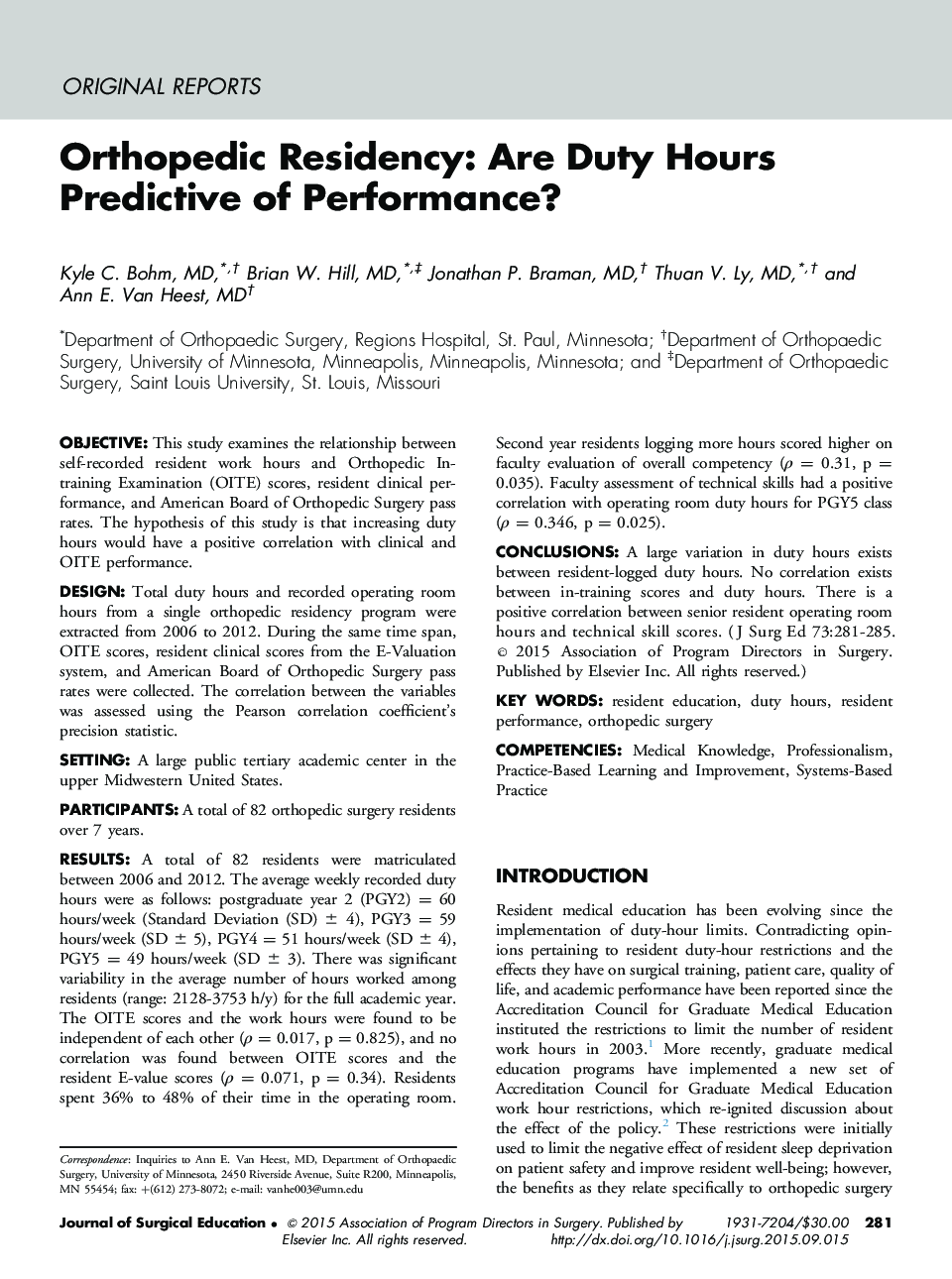| کد مقاله | کد نشریه | سال انتشار | مقاله انگلیسی | نسخه تمام متن |
|---|---|---|---|---|
| 4297819 | 1288332 | 2016 | 5 صفحه PDF | دانلود رایگان |
ObjectiveThis study examines the relationship between self-recorded resident work hours and Orthopedic In-training Examination (OITE) scores, resident clinical performance, and American Board of Orthopedic Surgery pass rates. The hypothesis of this study is that increasing duty hours would have a positive correlation with clinical and OITE performance.DesignTotal duty hours and recorded operating room hours from a single orthopedic residency program were extracted from 2006 to 2012. During the same time span, OITE scores, resident clinical scores from the E-Valuation system, and American Board of Orthopedic Surgery pass rates were collected. The correlation between the variables was assessed using the Pearson correlation coefficient’s precision statistic.SettingA large public tertiary academic center in the upper Midwestern United States.ParticipantsA total of 82 orthopedic surgery residents over 7 years.ResultsA total of 82 residents were matriculated between 2006 and 2012. The average weekly recorded duty hours were as follows: postgraduate year 2 (PGY2) = 60 hours/week (Standard Deviation (SD) ± 4), PGY3 = 59 hours/week (SD ± 5), PGY4 = 51 hours/week (SD ± 4), PGY5 = 49 hours/week (SD ± 3). There was significant variability in the average number of hours worked among residents (range: 2128-3753 h/y) for the full academic year. The OITE scores and the work hours were found to be independent of each other (ρ = 0.017, p = 0.825), and no correlation was found between OITE scores and the resident E-value scores (ρ = 0.071, p = 0.34). Residents spent 36% to 48% of their time in the operating room. Second year residents logging more hours scored higher on faculty evaluation of overall competency (ρ = 0.31, p = 0.035). Faculty assessment of technical skills had a positive correlation with operating room duty hours for PGY5 class (ρ = 0.346, p = 0.025).ConclusionsA large variation in duty hours exists between resident-logged duty hours. No correlation exists between in-training scores and duty hours. There is a positive correlation between senior resident operating room hours and technical skill scores.
Journal: Journal of Surgical Education - Volume 73, Issue 2, March–April 2016, Pages 281–285
